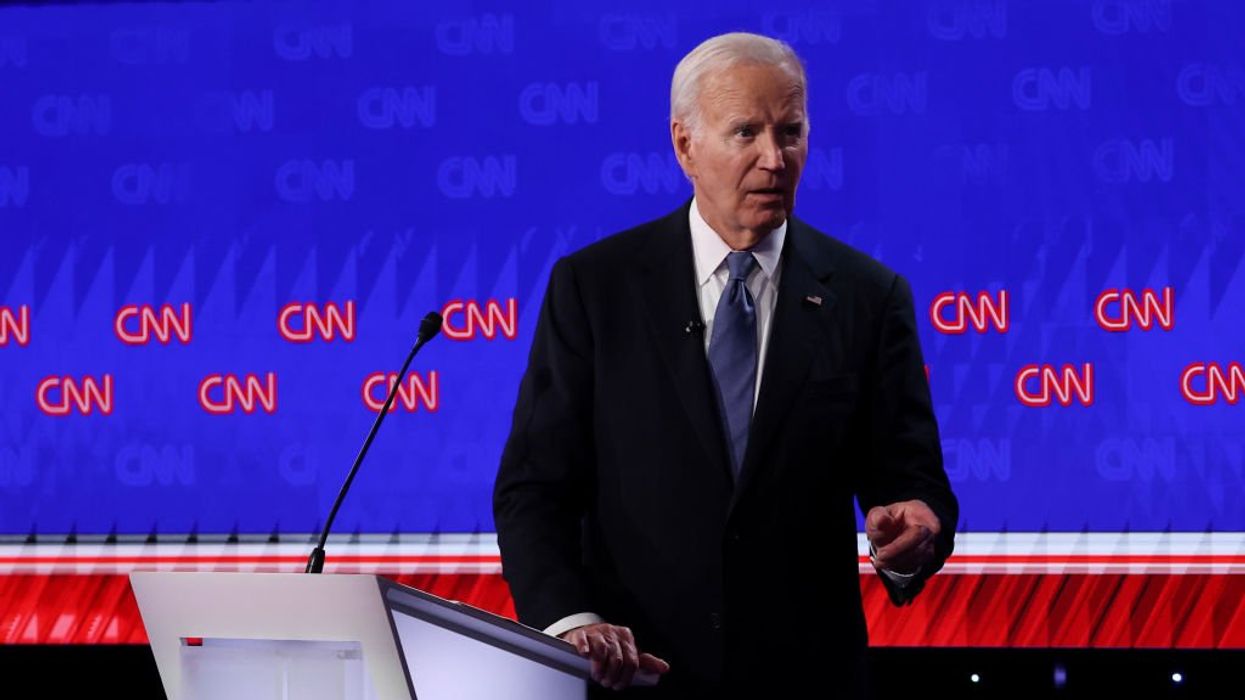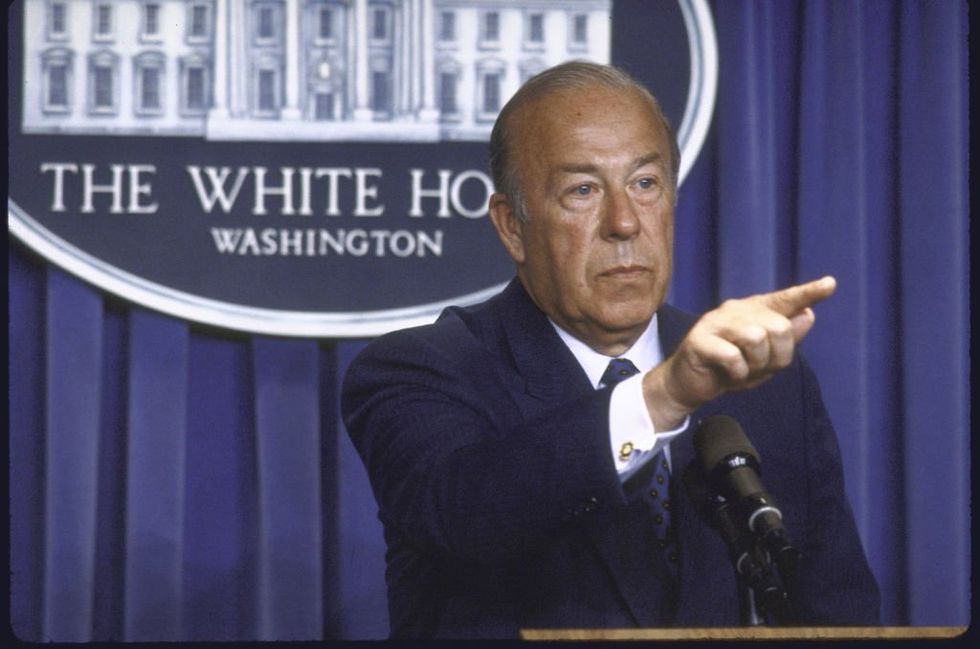
Justin Sullivan/Getty Images

The members of the president’s inner circle were in denial about his true condition, and that’s why they have put themselves, and America, in a catastrophic position.
Many on the right claim that Democrats knew Joe Biden would bomb in last week’s presidential debate and scheduled it early to remove him from contention. This perspective is tempting and understandable — and completely wrong.
Most of the people closest to Biden who would have been making these decisions are Democratic Party apparatchiks. More specifically, they are Biden apparatchiks. They wouldn’t enjoy anywhere near the same power and access with his successor.
Biden’s loyalists forgot how bad he would look to normal people left one-to-one with no support network.
For better or worse, their fates are tied to Biden. They had the debate early because they knew that while Biden was not in great shape, they had drunk the Kool-Aid and convinced themselves, at least to some degree, of the lies they have been telling for years to the American people about his mental state.
They thought that if they worked with the most favorable rules, on the most favorable network with the most favorable moderators, and gave Biden a full week to prep, they would be able to get through it, and even if they didn't “win,” it would be far enough from the election that voters would ignore a mediocre performance. They were not counting on what a disaster it would be to have Biden fully unmasked up against a competent and energetic opponent.
Yes, Biden's performance was such a disaster that it's tempting to think "this was all planned," but that's only if you ignore the levels of self-deception, lying, and magical thinking that have dominated the Democratic Party for years now. That's what was exposed on the debate stage last Thursday night.
Let me expand on this a bit further based on my own personal experience.
First, I should say I have a bias against conspiracy theories — not that conspiracies don’t exist (they absolutely do) but that conspiracy theorizing tends to be behavior from people outside a system that they are frustrated that they have no control over. It’s not a winner’s way of looking at the world.
At a human level I’m sympathetic, but at a practical level, it’s a form of taking out frustration, and it rarely leads to the political results we want. At the very least, before we grab on to a conspiracy theory, we should see if we can find a non-conspiratorial take that would explain the facts better.
Second, in an earlier time in my career, I spent almost a decade working very closely with the late Secretary of State George Shultz at Stanford University’s Hoover Institution. At the time I joined Hoover, Shultz was 88. By the time I left, he was 98. So I have ample personal experience in working with an aging principal.
Shultz was a remarkable man. Shultz was one of two people in U.S. history to hold four Cabinet positions. Apart from secretary of state for most of Ronald Reagan’s two terms in office, he had been a power player from the days when he had been a member of the Council of Economic Advisors in the first Eisenhower administration to the day he died at age 100. I was privileged to work with him, and I learned a tremendous amount from him.

Shultz was a super-ager in many ways. President Obama asked him to lead the U.S. delegation to Margaret Thatcher’s funeral — he had worked closely with Thatcher while he was secretary of state. Shultz took a cross-country flight from California to D.C. and then hopped immediately on a military plane that took him and the rest of the delegation to the U.K., where he had 45 minutes of downtime before having to head to 10 Downing Street to pass on his condolences in person to the prime minster. He was 93. It was a schedule that could have taxed a man decades younger, yet Shultz handled it with aplomb. He also continued writing and speaking right up until the day he died.
Although Shultz often had the energy and acuity of a man decades younger, he was not immune to Father Time. I obviously haven’t spent time with Biden, but I would imagine that Shultz’s abilities in his mid-90s were likely at least equal to Biden’s in his early 80s.
My job when I worked with him was to put him in situations where he would be in the best position to succeed. And he almost invariably did succeed. That meant making sure we were writing on the right topics, briefing him extensively before big meetings, making sure the topics were moved to subjects he was familiar with, and making sure that he was meeting with the right people in ways that would advance our agenda. In the earlier days, Shultz had to rely less on this sort of prep, but as he got into his mid- to later 90s, it was more important.
Now Secretary Shultz had a support system, including multiple administrative staff members, to help him, but the sort of assistance he got would be trivial compared to what Biden has as president of the United States. As president, everything Biden does is choreographed; every action he takes is the result of extensive pre-briefing. Every day, Biden has thousands of people working overtime to overcome his decline and hide his shortcomings.
Like Shultz as he moved into his mid- to late 90s, Biden likely has good days and bad days. On a good day, I am sure Biden can offer reasonably acute advice on issues, at least by his lights, based on his many decades of experience. On his bad days, much less so. But when you’re in the reality distortion field of the White House, it’s easy to pretend that the bad days aren’t really so bad, especially when the media is working overtime to cover for you. This is why the Biden camp didn’t realize that they were walking into a buzz saw when they agreed to debate Trump.
Because Shultz was absolutely capable of long stretches of acuity and sagacity well into his mid- to late 90s, it would have been easy for me to overestimate how well he might have done in a true rough-and-tumble debate at that age. And I imagine something similar went on with the longtime Biden loyalists who made up his senior advisers. They like Biden, they are loyal to Biden, and they knew that he could often do at least minimally acceptably with the entire machinery of government out there supporting him. As a result, they forgot how bad he would look to normal people left one-to-one with no support network.
Secretary Shultz was still a significant player in national and global affairs to his dying day. But if he wasn’t doing as well on a given day, it was no big deal. Officially, he was “retired,” and you could take advantage of the many good days without worrying so much about occasional bad days. But Joe Biden is the president of the United States. We need him to be at his best every day. And he’s clearly not capable of it.
But the members of his inner circle were in denial of that, and that’s why they have put themselves, and America, in a catastrophic position.
Editor’s note: A version of this article originally appeared at Jeremy Carl’s Substack, “The Course of Empire.”
Jeremy Carl